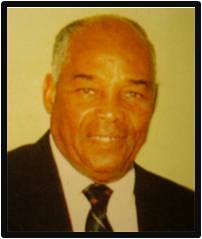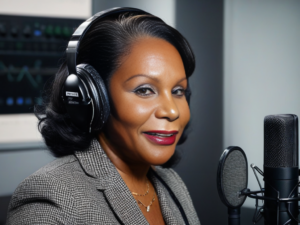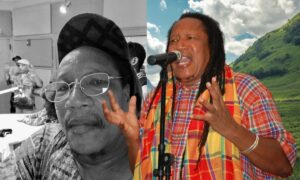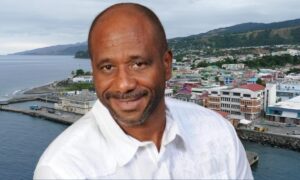Lennox Honychurch Facebook.
 Franklyn Andrew Merrifield Baron, First Chief Minister of Dominica, politician, businessman, and newspaper proprietor, passed away today, 9 April 2016. He was 93 years of age.
Franklyn Andrew Merrifield Baron, First Chief Minister of Dominica, politician, businessman, and newspaper proprietor, passed away today, 9 April 2016. He was 93 years of age.He was born in Portsmouth, Dominica, on 19 January 1923. He was educated at the Portsmouth Government School, The Dominica Grammar School, and St. Mary’s Academy. He started his business career in 1939 as Manager of his father’s company, A. A . Baron & Company, a firm engaged in import/export activities, general merchandise, and groceries, assumed the firm’s partnership in1945. He was involved in the first exports of bananas after World War II and was a founding member of the Dominica Banana Growers Association (DBGA).
He served on the Roseau Town Council in the 1940s. He unsuccessfully contested the Portsmouth Legislative Council seat in the 1951 general elections, losing to R.B.Douglas. As a result of this defeat, he abandoned Portsmouth and concentrated his attention on Roseau and the south of Dominica. He won the Roseau South seat in the 1954 and 1957 general elections.
In March 1956, the ministerial system of government was introduced, and Baron was made Minister for Trade and Production. In 1957 he founded the Dominica United Peoples Party (DUPP) and formed the government. In 1957 he represented Dominica at talks in Jamaica and Barbados, leading to the creation of the Federation of the West Indies the following year. Baron represented the Windward Islands at talks in London on the winding up of military bases in the West Indies between the United States of America, United Kingdom, and West Indies in 1957. He was deeply involved in laying out Goodwill as a suburb of Roseau, and Franklyn Lane is named after him.
In constitutional changes resulting from the 1959 Constitution and coming into effect in January 1960, Baron was made Minister of Finance and first Chief Minister of Dominica. He lost his seat and the government to the Dominica Labour Party (DLP) on 17 January 1961. Baron’s DUPP government was responsible for planning, negotiating, and beginning several important infrastructural projects such as Melville Hall Airport and the roads to the east coast. Still, these were completed during the first years of the DLP government and were forever associated with Edward Le Blanc’s leadership.
When the DUPP lost to the DLP by a landslide in the 1966 general elections, Baron quit active politics and returned to business, tourism, and real estate. He built and operated the Sisserou Hotel. He was a prime mover in the Rotary Club’s construction of a Psychiatric Unit to replace the outdated St. Luke’s psychiatric home.
He was a great friend of Mary Eugenia Charles, and when her Dominica Freedom Party came to power in 1980, Frank Baron was very much power behind the scenes. Dame Eugenia appointed him to several diplomatic posts. He served as High Commissioner to the Court of St.James, London, and was Ambassador to the UN, OAS, and the US. He founded Paramount Printers, bought out The New Chronicle newspaper, and re-established it under its former name.








Dominica’s first Chief Minister, Franklin Andrew Merrifield Baron was laid to rest at the Roman Catholic Cemetery following a state funeral at the St Gerard’s Hall Chapel in Roseau on Saturday April 22nd.
Mr. Baron passed away on 9th April, 2016 at the age of 93; he was laid in state at the State House Conference Centre on Friday 22nd April.
Among those attending the state funeral last weekend, were H.E the President of Dominica Charles Savarin and Mrs. Savarin, the Hon. Prime minister Dr Roosevelt Skerrit, the Hon. Speaker of the House Alix Boyd Knights and other members of parliament as well as family and friends.
The first Chief Minister was born in Portsmouth and was educated at the Portsmouth Government School, the Dominica Grammar School and St. Mary’s Academy.
He was involved in the first exports of bananas after World War II, after he joined his father’s import/export company A.A. Baron and Company as manager.
Former Chief Minister Baron was also a founding member of the Dominica Banana Growers Association.
In the 1940s he served on the Roseau town council and won the Roseau South seat in the 1954 and 1957 general elections.
When the ministerial system of government was introduced in March 1956, Baron was made Minister for Trade and Production. The next year he founded the United People’s Party (DUPP) and formed the government.
In constitutional changes resulting from the 1959 constitution, which came into effect in January 1960, Baron became Dominica’s first Chief Minister and Minister for Finance.
When the Dominica Labour Party won the general elections in January 17, 1961, Baron lost his seat. He quit active politics and returned to business, tourism and real estate.
He remained active in the community; however, and was the prime mover in the Rotary Club’s construction of a psychiatric unit to replace the out-dated St. Luke’s Psychiatric Home.
The first Chief Minister served as High Commissioner to the court of St. James, London and was ambassador to the UN, OAS and the US.
Baron leaves to morn his wife Sybil Baron and eight children including Minister for Foreign Affairs and CARICOM Affairs Francine Baron and former Parliamentary Representative for the Soufriere Constituency, Frederick Baron.